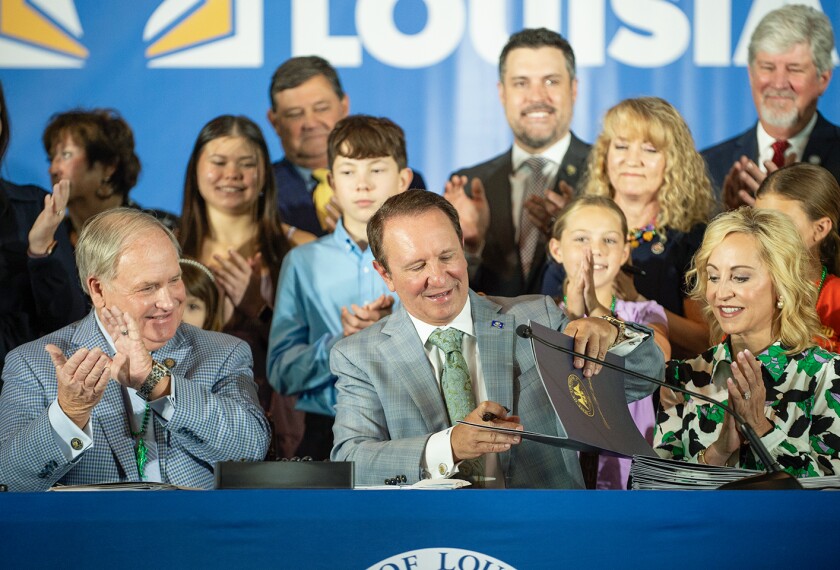The Texas Higher Education Coordinating Board last week unanimously rejected a proposal by the Dallas-based Institute for Creation Research that it be allowed to offer a Bible-based online master’s degree program to science teachers.
An advisory council had previously recommended that the board approve the proposal, which teaches creationism as part of science, but a vote was delayed in January after science advocates launched vigorous protests.
Earlier last week, Raymund Paredes, Texas’ higher education commissioner, recommended that the board reject the proposal, saying that because “the proposed degree program inadequately covers key areas of science, it cannot be properly designated either as ‘science’ or ‘science education,’ ” according to a statement. (“Bible-Based Science Education Degree Awaits Texas Higher Ed. Board Action,” Jan. 9, 2008.)
Henry Morris, chief executive officer of the institute, said prior to last week’s 8-0 vote that the organization probably would appeal a denial of its proposal. The institute has 45 days to appeal for reconsideration of the decision.
“It really wasn’t a surprise given the current climate of opposition that exists,” Mr. Morris said. “We anticipated resistance when we applied for it.”
Mr. Morris said the proposed curriculum included the teaching of evolution but also included Bible-based alternatives.
Students and faculty in the institute must profess faith in a literal translation of Biblical creation, that God created the world in six days, and that the Earth is much newer than evolutionary science suggests.
“Religious belief is not science,” Mr. Paredes said in a statement. “Science and religious belief are surely reconcilable, but they are not the same thing.”
The Texas Freedom Network, a religious watchdog group, rejected any framing of the issue as a matter of academic freedom or free speech.
“The issue is whether the state will sanction the teaching of religion as science. Committee members today recognized that doing so would be a disservice both to science and to faith,” said Kathy Miller, the group’s president.




